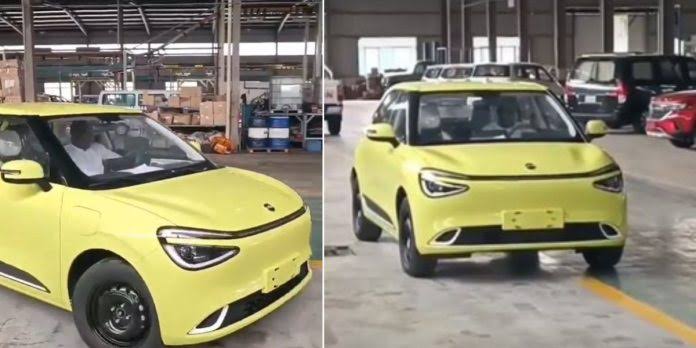Innoson Vehicle Manufacturing Company (IVM) has unveiled its first locally produced electric vehicle.
In a post on Facebook, the company’s Head of Communications and Corporate Affairs, Cornel Osigwe stated the electric vehicle was manufactured at the company’s production plant in Nnewi, Anambra state.
He said, “I just test drove the first Innoson vehicle Electric vehicle produced in Nnewi. We are just starting.”
Mr. Osigwe revealed that this marks the company’s first-ever production of an electric vehicle (EV). However, details regarding the pricing of the Innoson EV, number of units produced and the timeline for its commercial release were not disclosed.
Electric vehicles are a crucial technology for decarbonizing road transport, a sector responsible for over 15% of global energy-related emissions, according to the International Energy Agency (IEA).
In recent years, the sale of electric vehicles has seen significant growth, driven by improved range, a wider variety of models, and enhanced performance. Passenger electric cars are becoming increasingly popular, with an estimated 18% of new cars sold in 2023 being electric.
However, in many developing and emerging countries, sales have lagged due to the typically higher purchase costs compared to conventional vehicles and a limited charging infrastructure.
Despite this, the increase in petrol prices following the deregulation of the downstream sector of the petroleum industry might present an opportunity for investors in the EV space if the price of charging proves lower than refueling of petrol vehicles.
Nigeria’s EV history
In 2021, Nigeria introduced its first locally assembled electric vehicle, the Hyundai Kona, produced by Stallion Motors. This milestone followed the launch of a pilot program by the National Automotive Industry Design and Development Council (NADDC) in collaboration with the Stallion Group and other stakeholders, aiming to establish 100 solar-powered electric vehicle charging stations across the country.
The debut of the Hyundai Kona marked a significant step forward for Nigeria’s automotive industry, opening up new opportunities as the world shifts away from petrol-powered vehicles in response to climate change and efforts to reduce emissions.
Power challenges to EV deployment in Nigeria
Despite steps from Hyundai in EVs, Nigeria barely generates enough electricity for households and industries. The country only manages to generate around 5,000 Megawatts of electricity despite its energy demands reaching around 40 terawatts of power.
The World Economic Forum (WEF) reports that Nigeria currently faces one of the highest levels of energy poverty globally. Only 25% of rural populations have access to electricity, with most relying on biomass and waste as their primary energy source for cooking.
At the same time, Nigeria has one of the world’s highest electricity costs, averaging $0.52 per kilowatt-hour (kWh). According to a recent report by the International Energy Agency (IEA), Nigerians have had to rely on backup generators to meet a substantial 40% of their electricity needs.
Source: Nairametrics
Stay informed and ahead of the curve! Follow Africa Update Newspaper on WhatsApp for real-time updates, breaking news, and exclusive content. Don't miss a headline – join now!


